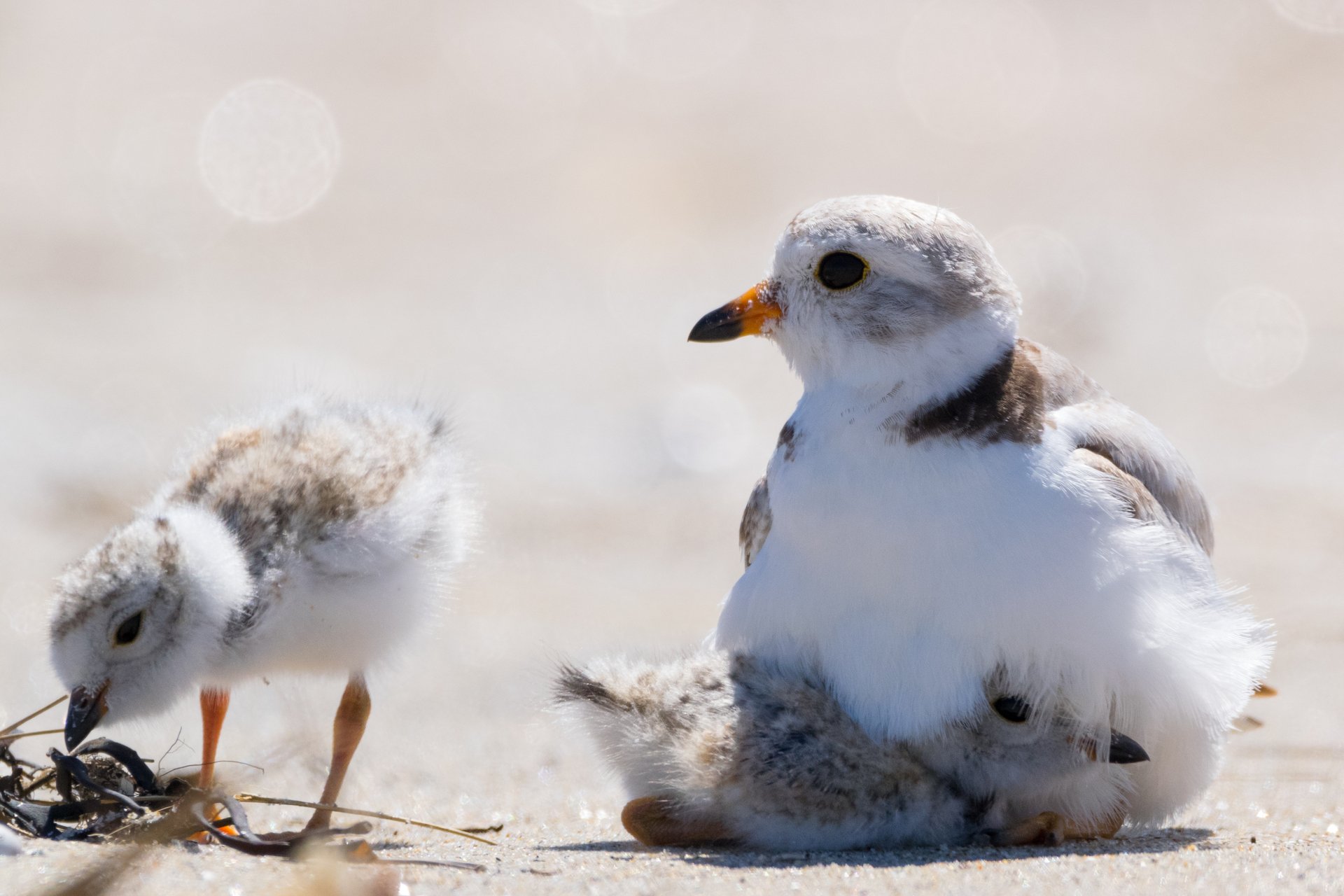For over 35 years, Mass Audubon has collaborated with hundreds of partners to research, monitor, and protect vulnerable beach-nesting birds in Massachusetts. This year, we’re thrilled to announce that more Piping Plovers nested on the beaches of Massachusetts than ever before in the history of our Coastal Waterbird Program.
When we launched the Coastal Waterbird Program in 1986, there were fewer than 200 breeding pairs of Piping Plovers in Massachusetts. According to preliminary data from MassWildlife's Endangered Species and Natural Heritage Program, approximately 1,145 pairs nested in Massachusetts in 2023—a more than 500% increase since the program began. While Piping Plovers remain a federally threatened species, this season’s data shows that these iconic birds are making real progress toward recovery in Massachusetts.
This year also brought Piping Plovers back to beaches where they haven’t been seen in many years, including locations in Scituate, Cohasset, Chatham, and Gloucester.
Mass Audubon’s Coastal Waterbird Program has been instrumental in enabling the remarkable growth of Piping Plover populations over the last thirty-five years. Our conservation staff directly protects nesting Piping Plovers by fencing off their nests to keep humans and predators away. We also advocate for the conservation of essential coastal ecosystems, and work to improve Piping Plover habitat at our own wildlife sanctuaries.
Thanks in part to our Coastal Waterbird Program, Massachusetts Piping Plover populations have recovered at a faster rate than those of most other states along the Atlantic Seaboard. As a result, approximately 50% of Piping Plovers on the Atlantic Coast now nest in Massachusetts. That makes coastal conservation even more important in our state—we’re responsible for safeguarding a huge portion of this threatened species’ worldwide population.
Success for Other Massachusetts Coastal Birds
Piping Plovers were not the only success story this year.
American Oystercatchers had a banner season, with preliminary data from MassWildlife showing populations increasing by 12% from 2022, jumping to 238 breeding pairs statewide. Excitingly, the oystercatchers that we monitored this year produced the most healthy chicks per pair on record, which bodes well for even more oystercatchers in years to come!
Least Terns had a less exciting, but nonetheless healthy year. Researchers observed approximately 3,565 breeding pairs of Least Terns, only slightly less than the 3,691 counted in 2022. Tern populations naturally fluctuate, but this slight decrease reminds us that we must continue focusing on conservation to restore tern populations to healthy levels. Since 53% of Least Terns in Massachusetts are directly protected by Mass Audubon staff while nesting, we’re confident that we can continue providing safer breeding conditions in the years to come.
Interested in getting involved with our work to protect vulnerable coastal birds? Our Coastal Waterbird Program is always looking for new seasonal staff and donations.
Stay Connected With Bird Conservation
Don't miss a beat on Mass Audubon's innovative work to conserve birds and their habitat



